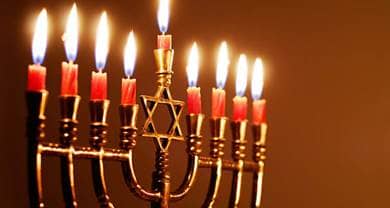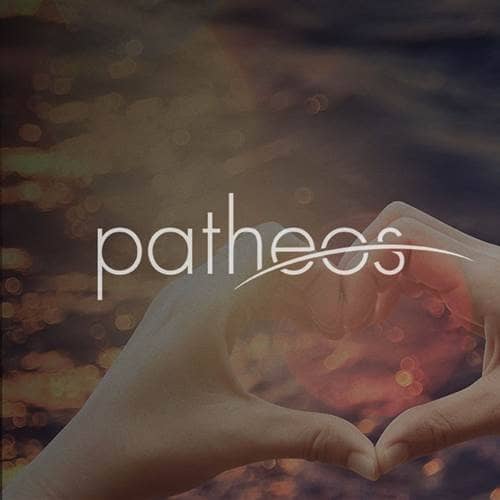- Trending:
- Forgiveness
- |
- Resurrection
- |
- Joy
- |
- Trump
- |
- Kamala Harris
- |
- Supreme Court

RELIGION LIBRARY
Judaism
Afterlife and Salvation
 When examining Jewish intellectual sources throughout history, there is clearly a spectrum of opinions regarding death versus the afterlife. In the biblical text of Psalms, there is a description of death, when people go into the earth or the "realm of the dead" and cannot praise God. The first reference to resurrection is collective in Ezekiel's vision of the dry bones, when all the Israelites in exile will be resurrected. There is a reference to individual resurrection in the Book of Daniel (165 B.C.E.), the last book of the Hebrew Bible.
When examining Jewish intellectual sources throughout history, there is clearly a spectrum of opinions regarding death versus the afterlife. In the biblical text of Psalms, there is a description of death, when people go into the earth or the "realm of the dead" and cannot praise God. The first reference to resurrection is collective in Ezekiel's vision of the dry bones, when all the Israelites in exile will be resurrected. There is a reference to individual resurrection in the Book of Daniel (165 B.C.E.), the last book of the Hebrew Bible.
During the Second Temple Period, the Sadducees, High Priests, denied any particular existence of individuals after death because it wasn't written in the Torah, while the Pharisees, ancestors of the rabbis, affirmed both bodily resurrection and immortality of the soul, most likely based on the influence of Hellenistic ideas about body and soul and the Pharisaic belief in the Oral Torah. The Pharisees maintained that after death, the soul is connected to God until the messianic era when it is rejoined with the body in the land of Israel at the time of resurrection.
| Sadducees (High Priests) | Pharisees (ancestors of rabbis) |
| deny existence after death | affirm bodily resurrection and immortality of the soul |
| body and soul rejoined in messianic era |
According to various Jewish intellectual sources and folk traditions up through the medieval period, there is a gradual transition from physical death to an afterlife in which the body and spirit remain connected to one another in some way either through resurrection or immortality of the soul. According to early rabbinic folklore, the transition from death to life actually begins three days after death when the soul is believed to hover over the grave hoping to be restored to the body. Yet some rabbinic sources claim that twelve months after death, the soul maintains a temporary relationship with body in a type of purgatory leading either to paradise, Gan Eden, or hell, Gehinnom.
The condition of the soul during the twelve-month purgatory is uncertain. There is a spectrum of opinions ranging from the idea that it is quiescent to fully conscious with the only difference being the power of speech. There is also a debate about how much the dead know of the world left behind. The rabbis even decried the practice of eating a meal between Shabbat afternoon prayers and sunset because of God's custom of letting spirits out of their storage place and giving them food from the "courtyard of the dead" and brook water flowing out of the Garden of Eden.
According to medieval folklore, there was a belief in the spirits of the deceased maintaining bodily form in a ghostly existence and tormenting the living. There was actually a popular belief that ghosts gathered nightly with other spirits, studying, adjudicating disputes, and praying. In this interaction between spiritual and earthly realms, ghosts met during the day while carrying out a punishment on earth or told survivors about good fortune in olam ha-bah, the "World to Come." One could even argue that there was interdependence between the dead and living with the former being given food and water by the latter during Shabbat.
In medieval philosophical sources, Rabbi Saadiah Gaon (892-942) promoted a belief in bodily resurrection based on the argument of God's status as creator. He argued that if God could create the world out of nothing, then all the more so can God "create something from something disintegrated and dissolved," in other words, refashioning and reviving the dead. Maimonides (1135-1204) rejected bodily resurrection in favor of immortality of the soul based on neo-Platonic and Aristotelian denigration of the body. He argued that literal understandings of bodily resurrection are naïve and based on the immaturity of the masses who must be encouraged to obey God's commandments in order to receive some physical reward or induce fear of receiving punishment. In reality, according to Maimonides, the soul continues on after the death of the body, experiencing eternal pleasures of the spirit. He based this on a Talmudic passage from Brachot 17a, "In the world to come there is no eating, drinking, washing, anointing or sexual intercourse, but the righteous sit with their crowns on their heads enjoying the radiance of the Divine Presence."
In rabbinic literature, there are sources on divine judgment and salvation in olam ha-bah, the "World to Come." Divine judgment of the wicked occurs in Gehenna or Gehennom, a type of purgatory or hell where they will be cleansed of their sins for up to a year and beyond. Salvation in olam ha-bah is described in three different ways: disembodied souls basking in the divine presence with no bodily urges; feasting out of the flesh of Leviathan; and generally experiencing eternal life with no evil.
| The Seven Commandments |
| 1. establish courts of justice 2. refrain from blaspheming the God of Israel 3. refrain from idolatry 4. refrain from sexual perversion 5. refrain from bloodshed 6. refrain from robbery 7. refrain from eating meat cut from a living animal |
Finally according to the rabbis, both the Jews and righteous Gentiles will receive salvation in olam ha-bah. Jewish people have a "reserved place" in olam ha-bah based on their study of Torah along with prayer, repentance, and good deeds, though their "reservation" for olam ha-bah can be cancelled as a result of sins. The rabbis also gleaned from the Torah that there are seven universal commandments enjoined to the children of Noah. Because they saw their interpretations as an extension of divine revelation through the Oral Torah, the rabbis believed that these commandments were actually given by God, even though they are not explicitly stated in the Torah. According to the rabbis, righteous Gentiles are eligible to receive salvation based on whether they have fulfilled these seven commandments: to establish courts of justice and to refrain from blaspheming the God of Israel, idolatry, sexual perversion, bloodshed, robbery, and eating meat cut from a living animal. Ultimately, as indicated in the Hebrew scriptures and reiterated by post-Holocaust theologian Irving Greenberg, it was always God's plan to bring redemption to both Jews and the non-Jewish world.
Study Questions:
1. Does Judaism have a consistent understanding of the afterlife? Explain.
2. Why is salvation related to both the body and the soul?
3. What is olam ha-bah? How is it described?
4. Is Jewish afterlife exclusive to Jews? Explain.










